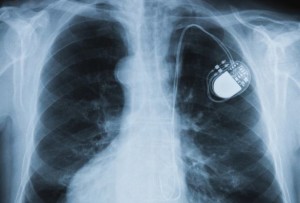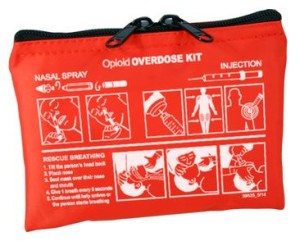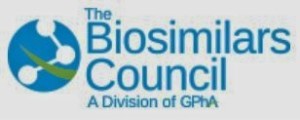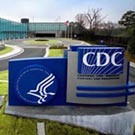- NHS to help design 10 ‘healthy new towns’ (pharmatimes.com)
NHS England is helping to design 10 ‘healthy new towns’ across the country alongside Public Health England, in the hope of developing new solutions to key healthcare challenges such as obesity and dementia...Under the plans, more than 76,000 new homes with potential capacity for around 170,000 residents will be built - with funding from local councils and the private sector - in environments specifically set up to address 21st century health needs...NHS England said it will bring together renowned clinicians, designers and technology experts to reimagine the delivery of healthcare in residential areas, "to showcase what’s possible by joining up design of the built environment with modern health and care services, and to deploy new models of technology-enabled primary care"...Ideas to be tested include fast food-free zones near schools, safe and appealing green spaces, dementia-friendly streets and digital access to GP services...The move comes as the number of working days lost in Britain due to ill health reaches 130 million, while physical inactivity is a direct factor in one in six deaths and has an overall economic impact of £7.4 billion ($10.5 billion)...
- ACIP Approves 2016 Adult Immunization Schedule (physiciansbriefing.com)Advisory Committee on Immunization Practices Recommended Immunization Schedule for Adults Aged 19 Years or Older: United States, 2016* (annals.org)Adult Immunization Schedule, Full Version (color, 5 pages) (cdc.gov)
The Advisory Committee on Immunization Practices has approved the recommended adult immunization schedule for 2016. The recommendations are published as a clinical guideline in the Feb. 2 issue of the Annals of Internal Medicine...The researchers note that the major changes to the schedule relate to human papillomavirus, pneumococcal, and serogroup B meningococcal vaccines. The nine-valent HPV vaccine was added to the schedule, and can be used for routine vaccination against HPV for males and females. For immunocompetent adults aged 65 years and older, the vaccine interval for 13-valent pneumococcal conjugate vaccine followed by 23-valent pneumococcal polysaccharide vaccine was changed from "six to 12 months" to "at least one year." Immunocompromised adults, and those with anatomical or functional asplenia, cerebrospinal fluid leak, or cochlear implant, aged 19 years or older, should receive PPSV23 at least eight weeks after PCV13. All persons aged 10 years and older who are at increased risk for serogroup B meningococcal disease should have the MenB vaccine series.
- FDA Takes Action Against Medical Device Hacking (newsmax.com)Postmarket Management of Cybersecurity in Medical Devices (fda.gov)
Food and Drug Administration on Friday issued draft guidelines to medical device makers on how to protect patients from cybersecurity vulnerabilities in the devices...Cybersecurity threats to medical devices are a growing concern...The exploitation of cybersecurity vulnerabilities presents a potential risk to the safety and effectiveness of medical devices...The draft guidance, which is not legally binding, recommends companies take a number of actions, including monitoring and assessing risk, adopting a coordinated vulnerability disclosure policy, and taking measures to address cybersecurity risk early.
- Under pressure, CDC delays release of opioid prescribing guidelines (statnews.com)Draft CDC Guideline for Prescribing Opioids for Chronic Pain, 2016: Summary of Constituent Comments and CDC Response (freepdfhosting.com)Painkiller politics: Effort to curb prescribing under fire (hosted.ap.org)
Under mounting criticism, the Centers for Disease Control and Prevention has delayed plans to...release controversial opioid prescribing guidelines for primary care physicians. Instead, the guidelines will now be issued sometime later in the year...The delay was first signaled yesterday when the CDC unexpectedly disclosed that public comments on its proposal would be accepted through Jan. 13. However, the agency will also tap the National Center for Injury Prevention and Control’s Board of Scientific Counselors, a federal advisory committee, to review the guidelines and public comments...The postponement follows complaints from representatives of other federal agencies and consumer advocacy groups that the CDC guidelines were based on weak evidence and would unfairly restrict some patients from obtaining needed pain relief. The agency was also chastised for using a “secretive” process to formulate the guidelines, which some critics argued had violated federal law...the CDC delay apparently reflects a desire to comply with the Federal Advisory Committee Act, which governs how expert groups are formed to provide official advice.
- FDA advisory panel strongly backs biosimilar Remicade (reuters.com)FDA Briefing Document Arthritis Advisory Committee Meeting February 09, 2016 (fda.gov)
A medical advisory panel to the Food and Drug Administration...recommended approval of a cheaper biosimilar form of Johnson & Johnson's Remicade (infliximab) arthritis drug that could eventually batter sales of the branded product...The panel, by a vote of 21-3, supported use of the biosimilar from Celltrion Inc and Pfizer Inc, called Remsima. The FDA usually, but not always, follows the advice of its advisory panels...The independent panel determined that clinical trials of Remsima showed no clinically significant differences with Remicade in treatment of rheumatoid arthritis and a related condition called ankylosing spondylitis...Moreover, the panel agreed Remsima is likely as safe and effective for other conditions Remicade treats, including psoriasis and inflammatory bowel conditions like Crohn's disease and ulcerative colitis, even though Remsima was not tested against those conditions.
- FBI, DEA Release Documentary Film Addressing Heroin/Prescription Drug Abuse (dea.gov)
In an effort to combat the growing epidemic of prescription drug and heroin abuse, leaders of the FBI and DEA today unveiled a documentary aimed at educating students and young adults about the dangers of the addiction. "Chasing the Dragon" is a 45-minute documentary film that profiles the stories of several people who either abused opiates or had family members become addicts. It profiles the cycle of addiction and looks at the tragic consequences associated with opioid abuse. The documentary also features interviews with medical and law enforcement professionals discussing the effects of the addiction, and how this epidemic is unlike any this country has seen before...(Chasing the Dragon: The Life of an Opiate Addict - downloadable here)...
- New FDA policy gives its staff wide latitude on social media. Could pharma freedom follow? (fiercepharmamarketing.com)
Tweet at will, FDA employees. One of the most liberal social media policies in the federal government now belongs to the FDA. Just last month, the FDA finally set out its own departmental policy that encourages its scientists and other employees to use "social media technologies to enhance communication, collaboration, and information exchange in support of FDA's mission to protect and promote public health."...While many would argue that the guidelines for pharma and other medical regulated products on social media outlined so far by the FDA have had a chilling effect on the industry's social media use, especially Twitter, its own FDA employee guidelines should have quite the opposite effect...
- GPhA responds to Congressional hearing on BCPIA (drugstorenews.com)
The House Energy and Commerce Committee convened...to hold an oversight meeting about the Biologics Price Competition and Innovation Act of 2010...Among the stakeholders in the enactment of the law is the Generic Pharmaceutical Association’s Biosimilars Council...GPhA president...Chip Davis commented on the hearings, noting the need for more straightforward naming conventions for biologics and biosimilars and calling for price calculations that ensure sufficient reimbursement from the Centers for Medicare and Medicaid Services...Biosimilars Council...is concerned that different international nonproprietary names for biologics and biosimilars could lead to patient and provider confusion, increasing the likelihood of prescribing errors...The Council also urges [CMS] to provide non-interchangeable biosimilars with a unique average sales price calculation and billing code, to ensure a competitive reimbursement…
- USP <800> Updates Standards that Protect Health Care Workers from Hazardous Drugs (specialtypharmacytimes.com)Frequently Asked Questions: <800> Hazardous Drugs—Handling in Healthcare Settings (usp.org)
A new health care quality standard has been released to help protect both care providers and patients...The updated United States Pharmacopeia-National Formulary includes a new general chapter, <800> Hazardous Drugs – Handling in Healthcare Settings, to decrease the risk of residual exposure to potentially dangerous medications...USP <800> applies to physicians, nurses, veterinarians, pharmacists, and technicians in health care facilities that handle or store hazardous drugs to prevent and limit exposure... This new standard developed by the USP Compounding Expert Committee, which builds upon other prior publications, included insight from a panel of medical industry experts. The panel helped guide best practices, different techniques, engineering controls, and other elements for handling hazardous drugs...
- Opioid abuse propels record U.S. deaths from overdose: CDC (reuters.com)Under pressure, CDC delays release of opioid prescribing guidelines (statnews.com)
U.S. deaths from drug overdoses hit a record high in 2014, propelled by abuse of prescription painkillers and heroin, the Centers for Disease Control and Prevention said on Friday...Drug overdoses increased 6.5 percent in 2014 from a year earlier, killing 47,055 people. The highest rates of death from overdose were seen in West Virginia, New Mexico, New Hampshire, Kentucky, and Ohio, the CDC report said...Deaths from opioids such as prescription pain killers and heroin accounted for 61 percent of overdose deaths and increased 14 percent in 2014, the CDC said...Lower heroin prices, wider availability and higher purity are causing more overdoses, the agency reported. It recommends stricter guidelines for prescribing pain killers, expanded availability and wider access to naloxone, an antidote for opioid-related overdoses.









